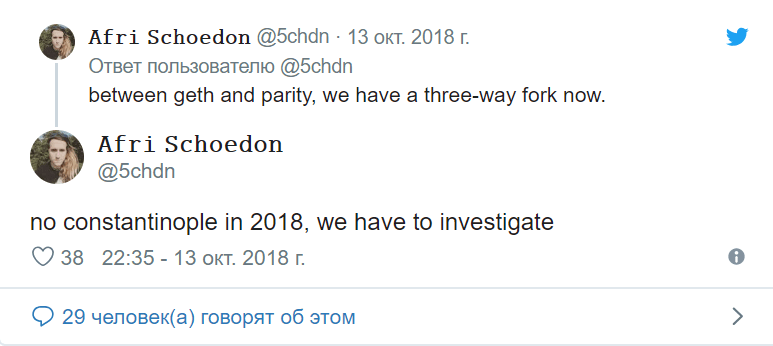Ethereum Constantinople goes to testnet with some problems. One of the most significant changes is the reduction of block remuneration: from 3 ETH to 2 ETH for each block mined by the miners. The...
Ethereum Constantinople goes to testnet with some problems. One of the most significant changes is the reduction of block remuneration: from 3 ETH to 2 ETH for each block mined by the miners. The Constantinople fork was criticized at block 4,230,000 on the test network, but the delay stopped the fork at block 4,299,999 (as was planned earlier). Ethereum developers believed that the delay was caused by the fact that miners did not update their clients to support the update. The leading developers were eventually able to increase the support of the miner to accept the update on the Ropsten test network.
After the update was complete, another problem arose. Two of Ethereum main customers Geth and Parity experienced a consensus error and caused a hard fork separation on the test network, and miners began to mine different chains of the network. Now the main developers are still considering the reason for the chains separation, but Afri Schoedon from Parity tweeted that due to the split of the chain (Hard fork) after Constantinople in Ethereum Ropsten testnet, this update can’t take place in 2018 until these concerning reasons are eliminated.
Vitalik Buterin: I regret that Ethereum used the term «smart contract». Constantinople hard fork caused a «problem in consensus» when running on the Ethereum test network.

Vitalik Buterin,
Ethereum co-founder
Share this with your friends!







Roger Stanis
Well… I expected that tbh